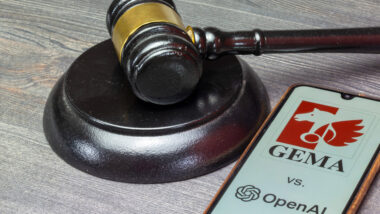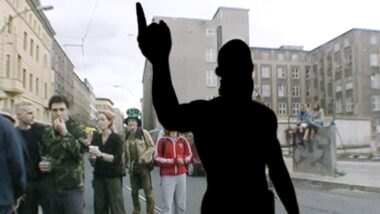Michael Geist hat ein 20-Minuten langes Video eines Vortrages über das Anti-Piraterie-Geheimabkommen ACTA veröffentlicht: The ACTA Threat: My Talk on Everything You Need To Know About ACTA, But Didn’t Know To Ask.
The Guardian: What is Acta and what should I know about it?
Supporters say the treaty will help create a broad consensus on how to deal with counterfeit goods: the kind of legislation usually aimed at criminals who mass-manufacture and sell pirate DVDs, or flood the market with dangerous fake products such as batteries and electrical equipment. In truth, the treaty also contains suggestions for the control of internet content that some believe could radically alter the nature of copyright law worldwide.
Von den beiden EFF-Mitarbeitern Eddan Katz und Gwen Hinze gibt es ein juristisches Papier über „The Impact of ACTA on the Knowledge Society“ beim Yale Journal of international Law. Das kann man aber auch als Nicht-Jurist lesen.
The Impact of the Anti-Counterfeiting Trade Agreement on the Knowledge Economy: The Accountability of the Office of the U.S. Trade Representative for the Creation of IP Enforcement Norms Through Executive Trade Agreements
Und hier ist noch ein spannender Artikel des San Francisco Chronicle zu Piraterie, Innovation und Asien: Knock it off: Global treaty against media piracy won’t work in Asia.
Most people, if asked, would probably agree that content shouldn’t be 100 percent free — that artists and creators should have some way to earn a living from their work. The problem is that ACTA, like most proposed solutions to copyright infringement, is all stick, no carrot; it focuses on punishing offenders rather than encouraging innovative ways of doing business that account for the new realities of the global economy. All of which effectively makes the treaty a nonstarter for two-thirds of the world’s population. That’s because in Asia, „intellectual property“ as we think of it is an alien concept, recently imported from the West and hastily transplanted with limited success at best.




Falls sich jemand wundert:
Eddan Katz ist nicht tot, das ist einfach nur eine seltsamer Asterisk-Ersatz, der im PDF verwendet wird…
Was mich interessieren würde: Das ACTA wurde Ende 2007 gestartet, unmittelbar nachdem auf dem G8-Gipfel in Heiligendamm in blumigen Worten eine Verschärfung der geistigen Eigentumsrechte gefordert wurde. Da liegt es doch nahe anzunehmen, dass der Start der Verhandlungen genau dort beschlossen wurde. Auch hat sich Angela Merkel persönlich sehr um eine solche Verschärfung bemüht. Kennt jemand die Hintergründe oder gibt es wenigstens Spekulationen dazu?
Erreichbarkeit der Website von Michael Geist
Beim Versuch, die Seite von Michael Geist ( http://www.michaelgeist.ca ) aufzurufen, komme zumindest ich derzeit nur auf eine geparkte Domain.
Entweder hat er die Provider-Gebühren nicht bezahlt und ist dann einem Grabber zum Opfer gefallen oder die Content-Mafia mochte seine Inhalte so wenig, dass sie seine Inhalte hat sperren lassen (unter welchem Vorwand auch immer ..) ;-)
Weiß jemand näheres?
Grüße,
Frank
@Frank: Guter Punkt, das ist neu. Michael Geist hat sich noch nicht auf Twitter dazu gemeldet.
hier ist noch einer von thomas stadler: http://www.internet-law.de/2009/11/acta-provider-sollen-offenbar.html. der link bei ihm läuft auch auf die geparkte seite.
Überigens: das Institut für geistiges Eigentum in Bern hat eine Informationsveranstaltung zu ACTA angekündigt (siehe https://www.ige.ch/juristische-infos/rechtsgebiete/faelschung-und-piraterie/acta.html). Die Veranstaltung ist meines Wissens auf Januar verschoben worden. Wäre möglicherweise interessant, da hinzugehen, zumindest für wer in der Nähe wohnt.